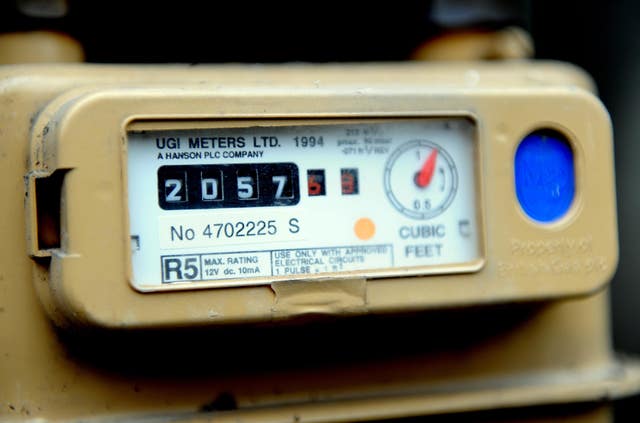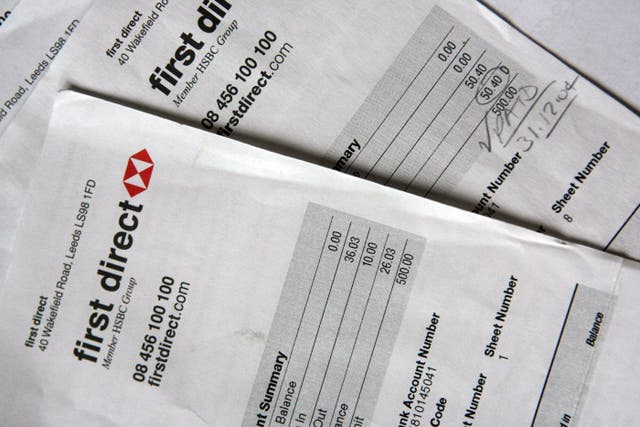
HOUSEHOLDS across the UK will be facing the very grim reality of not being able to afford their energy bills this winter following Ofgem’s price cap announcement.
The industry regulator confirmed an 80.06% rise, with the new cap coming into effect for around 24 million households in England, Scotland and Wales in October and will remain in place until it is adjusted again on December 31.
And it gets worse, based on Wednesday’s gas prices, experts at consultancy Auxilione think the cap will reach £5210 in January 2023 and £6823 in April.
Some have turned to "Don’t Pay UK" meaning people will refuse to pay their bills in protest, but what happens if you don’t pay your bill and what other options are available to you?
Here, the PA look at the pros and cons of each, and where to turn for advice and help.
How to reduce your energy bills
The ‘Don’t Pay’ option
The “Don’t Pay” group describes itself as “a grassroots movement demanding a fair price for energy for everyone”. More than 100,000 people have signed up to support a pledge to cancel their direct debits if the Government and energy firms “refuse to act” by October 1.
However, refusing to pay has serious consequences and households are strongly advised against taking this option – no matter how difficult their financial situation might be.
If you are on a pre-payment meter, failing to pay will mean your supply being cut off.

If you are on a regular or smart meter and you do not reach an agreement with your supplier before cancelling your direct debit, the firm may try to force you to have a pre-payment meter installed. This means you will have to pay for your energy usage upfront and a weekly payment to cover any debts – which can be as high as 90% of energy top-ups and 100% of electricity top-ups.
Pre-payment customers also pay more than others. The current energy price cap is £1971 for households with a standard meter, but £46 higher at £2017 for those on a pre-payment meter.
Failure to reach an agreement with your supplier may also result in them applying for a court warrant so they can visit your home and disconnect your energy supply. This can be done remotely if you have a smart meter, but your energy company must visit you to identify and assess your situation.
An Ofgem spokesperson said: “We know that people are under huge pressure, but we do not think it’s in consumers’ best interest to not pay their bills, and most leading charities and consumer groups agree.
“The knock-on effects of not paying bills can be huge for people. They could lose their direct debit discounts or be forced to move to a pre-payment meter. It could also damage their credit rating.”
Moving off direct debits to paying for what you use – or a ‘standing order’
As households’ monthly direct debits soar by hundreds of pounds, many are considering stopping them and paying for the energy they actually use in three-month chunks in the form of a standing order.
While this may give a sense of control, anyone paying on receipt of a three-monthly bill for actual usage will pay considerably more than direct debit customers as almost all providers add a discount for direct debit payments.
Gillian Cooper, head of energy policy for Citizens Advice, said: “Paying as you go can give you more control over the amount you pay, but you might pay more for that control. It’s unlikely that you would save money by moving to pay-as-you-go, because you can’t spread your costs over a year.”

Direct debits remain the best option
Despite sickening increases, staying on a direct debit plan remains the most cost-effective option for paying for your energy.
However, customers have the right to challenge any increase that goes above the increased price cap – Ofgem is carefully monitoring this and has already warned firms that direct debits must be set correctly and they must “clearly communicate any changes in a way that helps consumers understand their payments”.
I’m really struggling, where can I turn?
You should first contact your supplier and notify them that you want to pay off your debt through a payment plan. They should discuss your options with you and come to an agreement.
When coming to an agreement, your supplier should consider what you can afford to pay based on your income, outgoings, and any other debts you have. They will also consider how much energy you are likely to use in the future by looking at your past usage.
To ensure your energy bill is accurate, send your supplier readings from your gas and electricity meter.
It is very important to resist, if at all possible, being moved on to a pre-payment meter as this is the least cost-effective way of paying for energy.
Rocio Concha, Which? director of policy and advocacy, said: “We strongly encourage anyone concerned about being able to pay rising energy bills to speak to their supplier as energy firms have a duty to agree a payment plan that households can afford.
“Depending on the supplier, customers can ask for a review of their payments, a reduction in or break from their payments, more time to pay or access to hardship funds.”



Why are you making commenting on The National only available to subscribers?
We know there are thousands of National readers who want to debate, argue and go back and forth in the comments section of our stories. We’ve got the most informed readers in Scotland, asking each other the big questions about the future of our country.
Unfortunately, though, these important debates are being spoiled by a vocal minority of trolls who aren’t really interested in the issues, try to derail the conversations, register under fake names, and post vile abuse.
So that’s why we’ve decided to make the ability to comment only available to our paying subscribers. That way, all the trolls who post abuse on our website will have to pay if they want to join the debate – and risk a permanent ban from the account that they subscribe with.
The conversation will go back to what it should be about – people who care passionately about the issues, but disagree constructively on what we should do about them. Let’s get that debate started!
Callum Baird, Editor of The National
Comments: Our rules
We want our comments to be a lively and valuable part of our community - a place where readers can debate and engage with the most important local issues. The ability to comment on our stories is a privilege, not a right, however, and that privilege may be withdrawn if it is abused or misused.
Please report any comments that break our rules.
Read the rules here